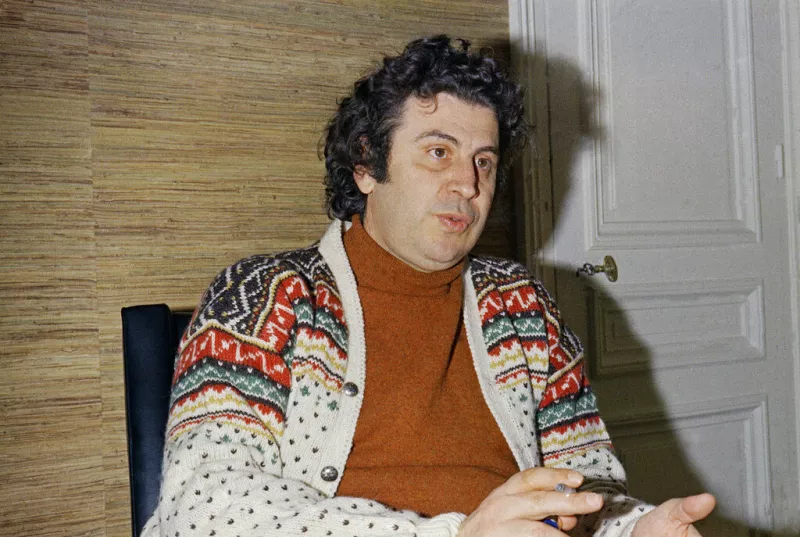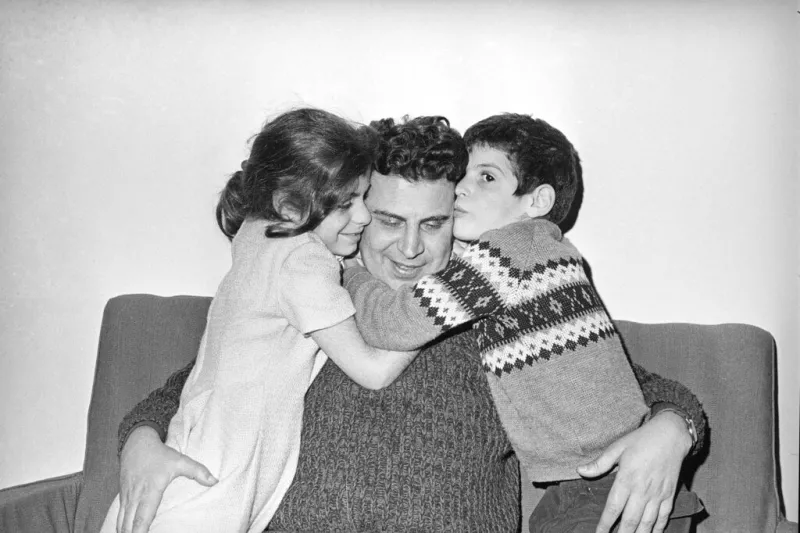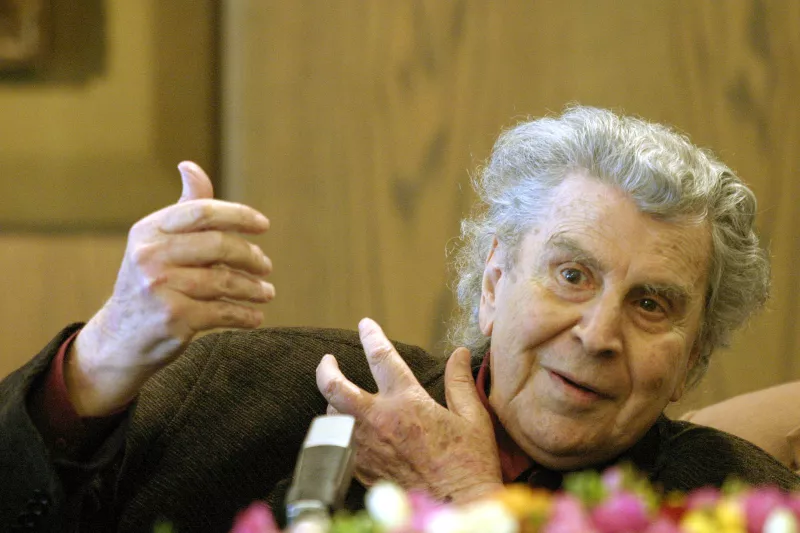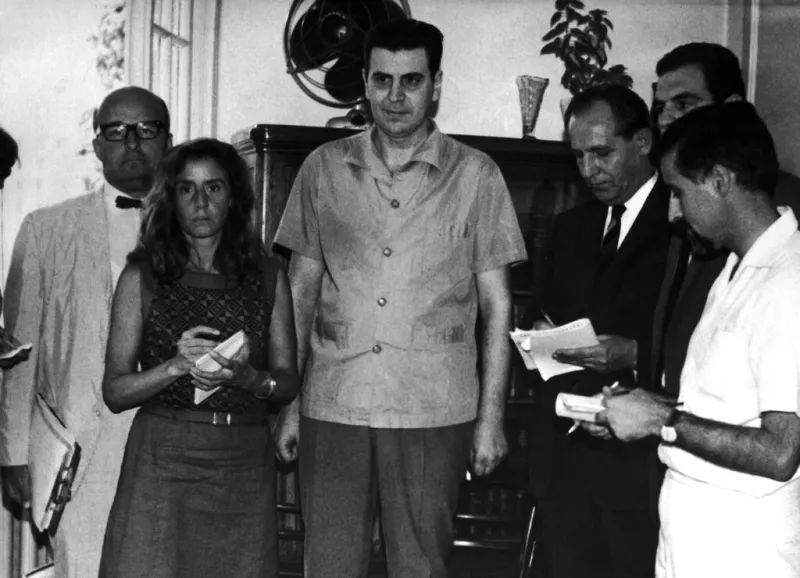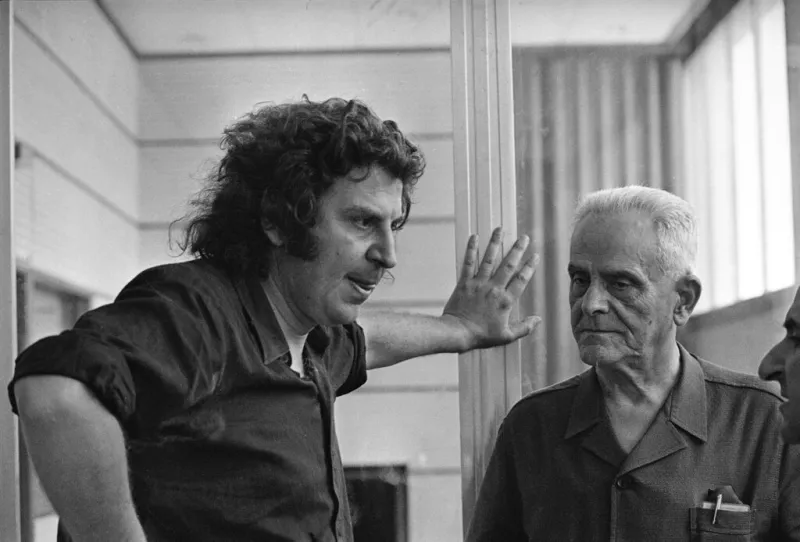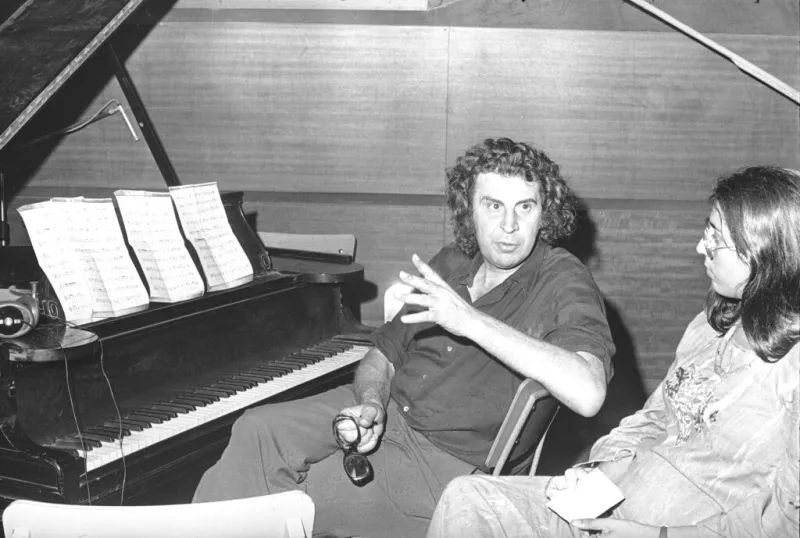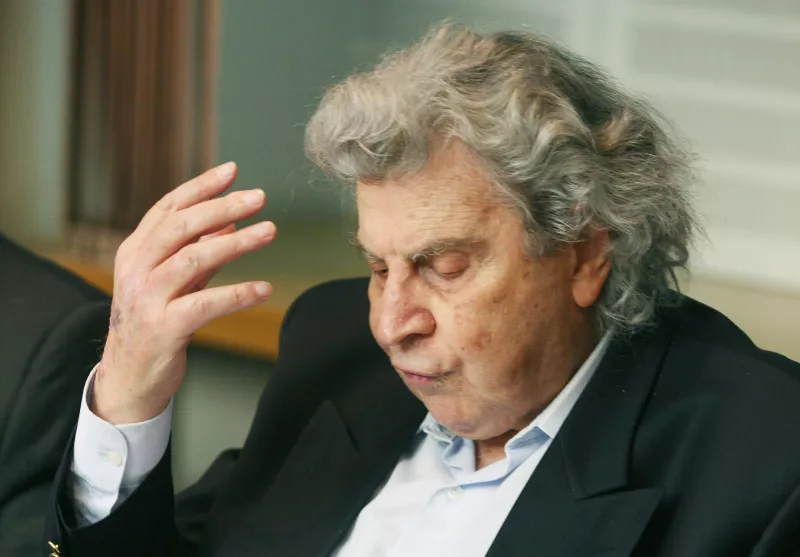They spent 100 years after the birth of Mikis Theodorakis. Of Mikey of Romance, his Mike which praised Greece and the Greeks. And it is true that Mikis, with his work, created and inherited a model artist who had not existed in the house.
The order “Mikis Theodorakis: The Color of Freedom”which was shown in SKAI In 2009, he recorded the life of the great Greek composer in six dramatized documentaries.
A series … Odyssey of the life and work of Mikis Theodorakis, with a narrator himself. Dozens of spaces, hundreds of actors, documents and, of course, his music, compose Mikis Theodorakis’ long experiential journey to the history of modern Greece from the interwar period to the present day.
“So it started for us a journey-voyage to the places of the endless Odyssey of our great composer. A trip that began in April 2008. A journey that enriched us all. From where Mikis passed, he left indelible traces.
In every area where we arrived, an unprecedented mobilization of love for Mikey was manifested. Simple people, local authorities, old fighters, spiritual people in the area, but also young people, who we were surprised to see in many choirs singing and performing the music of Mikis Theodorakis.
Everyone wanted to help gather archive material, but also to offer their help with the participation of dozens of people in shooting in these areas. “noted the screenwriter and director of the series, Giannis Katomeris.
The scenes that Mikis Theodorakis himself were so gleeful and illustrated by … dozens of amateur actors, youth choirs, students of the Theater Department of the University of Athens, theatrical groups took place in the creation of the dramatization.
-
Episode
Mikis Theodorakis begins the journey of life since his birth in 1925. His father as director of the Prefecture begins to travel, starting from the birthday of Chios, Mytilene, Syros, Athens, Ioannina, Argostoli, Patras, Patras. In Tripoli, Mikis Theodorakis young teenager discovered music as a way of life.
The occupation of Greece by the Germans mobilizes it, organized at the EAM in Tripoli, is arrested by the Italians at first and the Germans later. It saves death. He escapes to Athens and 18 years old, a fighter of ELAS, fights the conqueror. In Athens, he studies, falls in love and writes some of his great symphony works. He will live for a while the joy and hopes that are born after liberation. The December 1944 tragic will change his life and mark him …
(Scenario-Director: Giannis Katomeris, Organization-Direct Management: Mary Economidou, Photo: Akis Apostolidis-Prokopis Daphos, Texts: Eleni Astrinaki, Music editing: Kostas Thomaidis, Curated by stage: Antonis Chalkias and Narration: Beneta Economou)
-
Second episode
The second episode begins on December 3, 1944. Mikis Theodorakis, as a Dimonite of the ELAS reserve will fight in the 33 days of the “Battle of Athens”. With departure and defeat, Mikis will enter into illegality, be arrested and sent to Ikaria. There, holding his optimism and his youthful enthusiasm, he will write some of his best works.
In September 1947, amnesty was given and Mikis Theodorakis comes to Athens trying to organize his life as a free man. He writes music continuously. But not for long. The situation changes and Mikis is again illegal. In the morning he finds refuge at the Athens Conservatory and in the evenings he is looking for a roof, in empty houses, warehouses, buildings and in the countryside.
He gets sick heavily and is forced to return to his home. Thus, it is arrested again and exiled for the second time in Ikaria. Although it is in bad condition and the conditions of exile are now tougher, it completes, among other things, two major symphonic projects, “Elegant and Lament” and “1st Agreement”. The civil war is moving at the end and Mikis, along with many others, will be stacked on the hold of a ship in an unknown direction. At night when they reach their destination, they see a dark rock full of fires in dozens of lit barrels.
The scene looks like hell, as Mikis describes it when he goes up to Makronisos along with many others from the ship’s holds. The camera watches and captures characteristic moments of this torturous course of Mikis Theodorakis, through dramatized scenes that have been filmed in the real spaces where – by him – the events are described.
-
Third episode
Mikis Theodorakis, in 1948, from Ikaria where he was exiled will be transferred to Makronisos. “Where every concept of human existence was humiliated,” as he himself narrates. From Makronisos, Mikis will almost be transported almost dead by torture. For the first time he recovers at 401 military hospital in Athens and returns to Makronisos to torture harder.
It will be transferred to Chania, where it has long reached the doorstep of death and returns to life. Finally, in 1950, for the first time free after many years, he will come to Athens to try that he has written or has in mind, that he was “born” in the inhumane conditions and gave birth to the unique music of Mikis Theodorakis.
The memories transformed into a musical work by Mikis are recorded in this episode, for the first time, immediately, truly, and are a testimony unknown and at the same time useful, a human and exciting testimony. Mikis says that, “Another man arrived at Makronisos and another man left there.”
-
Fourth episode
Mikis Theodorakis is in Athens after his exile in Makronisos. He will get his degree from the Conservatory, serve in the army, marry Myrto, and when he is ready to leave France with the scholarship he has won, he will find that the consequences of persecution are still blocking him. Eventually, he will leave in France, where the years of symphony works, which have been inspired by Makronisos, will follow.
In 1958 he will make the critical breakthrough in Greek song, smiling it with great poetry. His first work, Yannis Ritsos ‘”Epitaph” and will be followed by George Seferis’ “surface”, “Axion Esti” by Odysseus Elytis, but also the “Song of the Dead Brother” in his own poetry. It will become the “voice” of a people who are trying morally, culturally and politically to regenerate. He takes part in all the great events in the 1960s, is a prosecutor in the assassination of Gregory Lambrakis, he becomes president of the “Lambrakides” movement and is “present” in the events following the murder of student Sotiris Petroula.
He then writes “Romance” and is optimistic about the cultural movement, until the dawn of April 21, when the junta of the colonels occupies power. But Mikis will be able to escape that night and not be arrested.
-
Fifth episode
The lens follows Mikey on “Long Road to Freedom”, from his arrest in August 1967 at the Security Hell on Bouboulina Street, in Averoff prisons, home restriction on Vrachati, exile in Zatouna and then in Zatouna and then in Prisons.
The junta fearing to die in her hands, she is secretly allowing her to be “kidnapped” by French politician Sreban Serber. In November 1973, rebellious students at the Technical University pulsate at the rhythm of Mikey’s music. In July 1974, Mikis learns that the junta delivers power to politicians and Constantine Karamanlis and returns to Greece on the same day.
-
Episode
Mikis Theodorakis talks about his great choices, confuses emotions, talks about philosophy, politics and art, the work that leaves a legacy and the future of the world.
Source :Skai
I am Frederick Tuttle, who works in 247 News Agency as an author and mostly cover entertainment news. I have worked in this industry for 10 years and have gained a lot of experience. I am a very hard worker and always strive to get the best out of my work. I am also very passionate about my work and always try to keep up with the latest news and trends.


